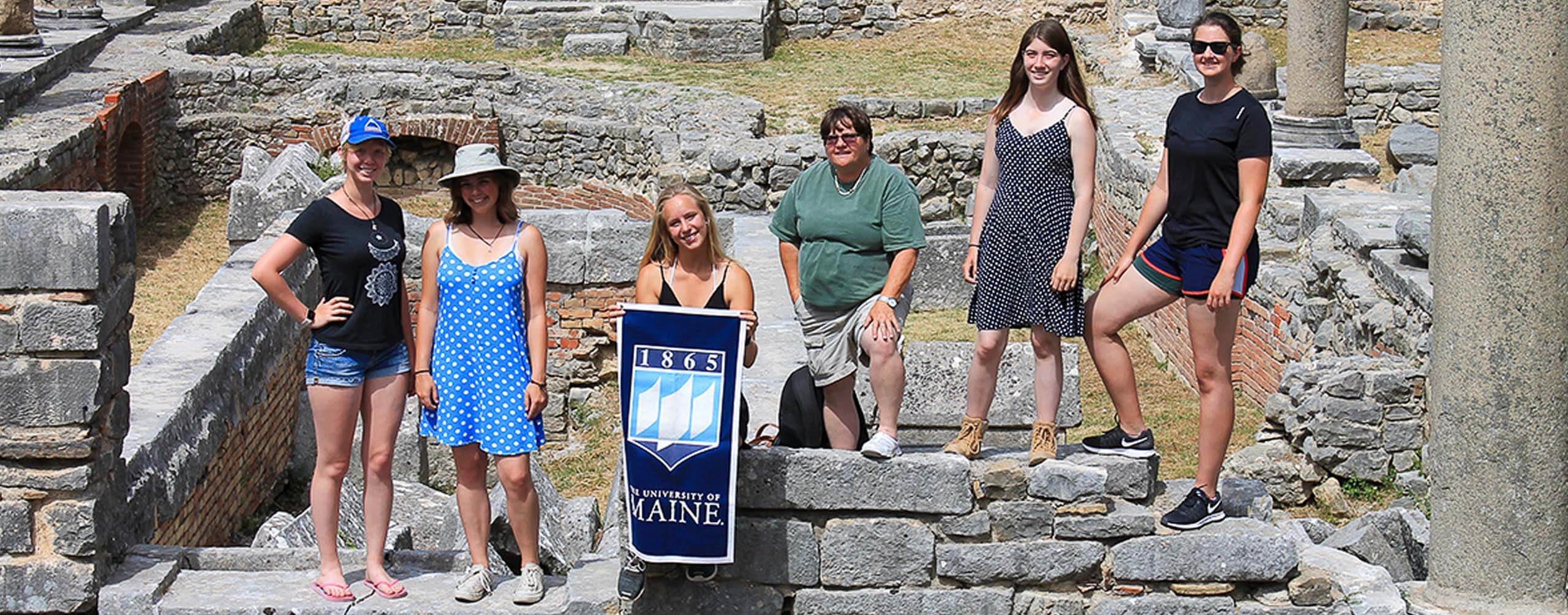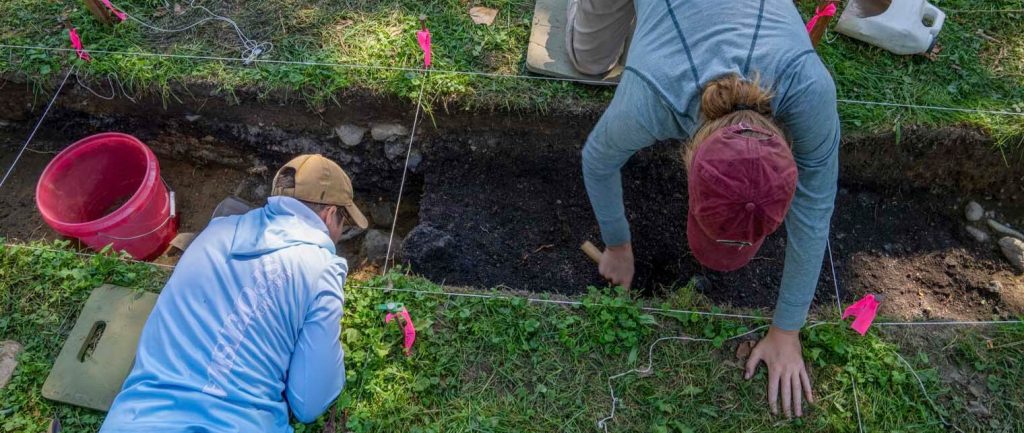
Anthropology
College of Liberal Arts and Sciences
Anthropology promotes understanding and appreciation of social complexity and diversity, actively improving the human condition. Anthropology faculty at the University of Maine are nationally and internationally known for their interdisciplinary research, which instills in students a broad understanding of human complexity through time and across the globe. Anthropology provides a well rounded, generalist education that provides students with the ability to critically evaluate theories, options and actions that affect humankind.
UMaine anthropology students are involved directly in research in the lab, in the field, and through independent, faculty-mentored study opportunities. Students have participated in excavations in Peru and Belize to analyze changes in ancient urban and agricultural landscapes; participated as research assistants in forensic taphonomy experiments; been involved in research of the Maine groundfish industry; and participated in the analysis of cultural perceptions of climate change.
Students analyze the spectrum of human existence from 6.5 million years ago, when the first hominid set foot on the African continent, through the process of human evolution, domestication of plants and animals, development of civilization, migration to the ends of the Earth, and the present diversity of cultures, religions, economies and kinship systems seen around the world. The department offers degree programs in anthropology, human dimensions of climate change, and international affairs/ anthropology through its collaboration with UMaine’s International Affairs Program. After introductory courses, which are large service classes, anthropology majors are enrolled in smaller-sized lecture courses, seminars and labs. The capstone course, the culmination of a student’s undergraduate career, reflects on what it means to be human through key issues in the field of anthropology.
A background in anthropology is useful in any career in which an understanding of people or societies in which they live is important. Students with course work and practical experience in archaeology, as well as those with graduate degrees in archaeology, have found employment with public agencies and private organizations concerned with cultural resource management.
The department regularly employs undergraduate teaching assistants for courses with large enrollments, including Forensic Anthropology, Introduction to Folklore, and World Geography, as well as work-study assistants for laboratory research analyses.
Samuel Hanes
Chair, Associate Professor of Anthropology
South Stevens Hall
207.581.1885 | samuel.hanes@maine.edu
Anthropology
College of Liberal Arts and Sciences
South Stevens Hall
207.581.1894

Anthropology Club
An active Anthropology Club discusses the field, shows films, interacts with faculty in informal settings, demonstrates and tries flint-knapping and attends conferences and other events.
